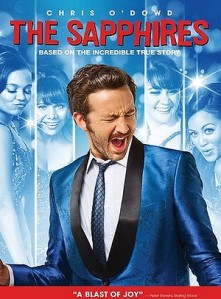A visionary’s utopia created by globalisation promises a world of equality and understanding across cultures. However, this wistful dream has proven to be a great distance from the truth.
Marshall McLuhan envisaged a “global village”, an international community characterised by the empowerment of its citizens in which all people, cultures and beliefs co-exist in harmony. A place where diversity is encouraged and multiculturalism celebrated. Where global citizens unite to address universal issues. A fantasy, no more.
It cannot be denied that we, as citizens of the world, have benefited greatly from many facets of globalisation. Rapid advancements in technology have bridged traditional notions of distance and subsequently dissolved cultural and national borders around the globe. Every day we find ourselves connected to, and immersed in a melange of sights, sounds and experiences of a variety of cultures.
While this may be convincing evidence of the positive impacts of globalisation, harmony remains an intangible notion borne away by the slightest hint of dissatisfaction. If truth be told, the economic gap continues to widen and topical issues of race and culture remain prevalent in the ‘global village’ of democracy and equality.
For example, recent controversy surrounding Adam Goodes’ ordeal on the football field sparked the Australian Human Rights Commission to launch an anti-racism campaign throughout the country.
Furthermore, outrage has exploded over the recent American design of The Sapphire’s latest DVD cover. The cover has relegated the four soul singers, who overcame the adversity of sexism and race in Australia during the 1970s to lead a successful career, to the
background of the image in a whitewashed hue. Meanwhile Irish actor Chris O’Dowd, who plays the manager of the Sapphires, features as the salient point of the cover, in full colour in the foreground. Naomi Meyers, chief executive of the Redfern Aboriginal Medical Service where two of the Sapphire’s work, echoes the global outrage generated by the image, describing it as “disrespectful to women of colour everywhere who have stood up against this sort of thing all their lives”. While it seems odd to diminish the importance of the key characters of the film in what has been construed as a racist move, many argue that this design is simply a clever marketing tool for commercial purposes. Rising to fame following his starring role in Brides Maids, Chris O’Dowd featuring in the foreground may merely be a smart move to sell the movie to a global audience. While many may not have heard of the Sapphires, Christopher O’Dowd is perhaps “the best shot Anchor Bay has of finding an audience for The Sapphires”.
It appears that in a world of globalisation, the hard truth is that fame and the promise of money triumph over the desire to inspire real change. And while we may all wish for the harmonious utopia that could be offered by globalisation, it is clear that a lot more action is needed to make this dream a reality.
